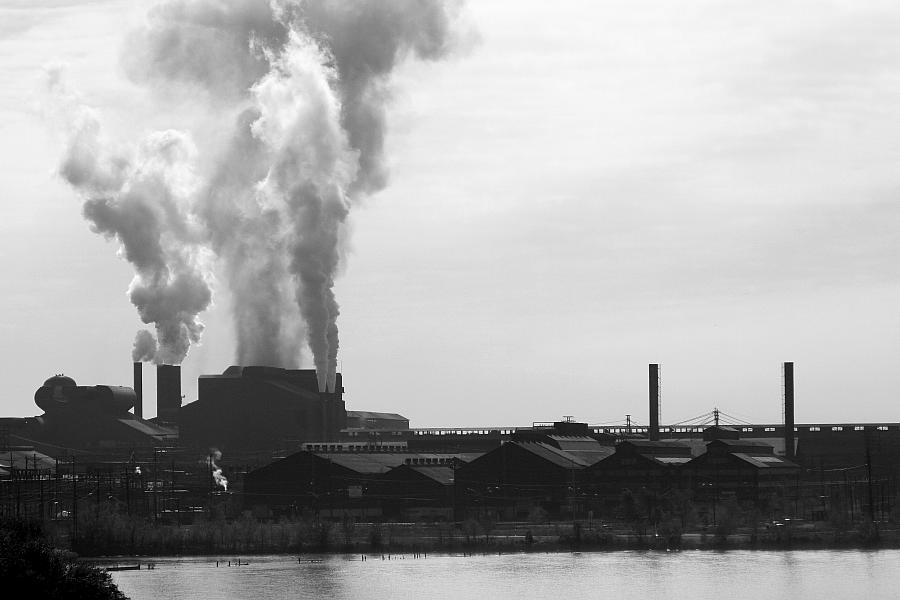Residents in Dearborn express worry over potential pollution increases

Photo courtesy of Flickr.com/CreativeCommons
On Mar. 6 representatives from the U.S. Environmental Protection Agency (EPA) and Michigan Department of Environmental Quality (MDEQ) held a meeting at the Delry Community Center in Detroit to get input on a potential Supplemental Environmental Project (SEP).
A SEP is an environmentally beneficial project that must improve, protect or reduce risks to public health or the environment.
During the meeting information about the EPA and MDEQ’s current enforcement action against Dearborn, Michigan’s Severstal factory was discussed. Severstal is one of the world’s leading integrated steel and steel-related mining companies.
The meeting took place only one week before a highly contested revised emissions permit was approved by the MDEQ’s Air Quality Division chief that authorizes Severstal, one of the state’s largest polluters to release higher levels of toxic fumes into the air.
Hazardous environmental conditions in the South End of Dearborn, Southwest Detroit and surrounding communities is expected to increase under the passing of the permit. Under it Severstal will be able to release more than 725 times more lead into the air from one portion of its plant. Carbon monoxide emissions could also more than double, and fine dust emissions could surge by up to five times.
On May 13, the day after the permit was approved representatives from Severstal and members of a newly formed advisory committee comprised of community members and environmental groups met to discuss details on the steel company and EPA going into a contractual agreement to implement an SEP.
The possibility of a seven figure SEP was mentioned, but that isn’t what residents living in these polluted areas asked for months leading up to the permit’s passing.
They rallied against the revised emissions permit because the pollution is already too difficult to bear, and made suggestions on how to control it; a seven figure SEP wasn’t one of them.
For decades people living in these neglected areas have complained about hazardous pollutants from Severstal’s factory. The South End of Dearborn and Southwest Detroit are very industrialized, which has contributed immensely to the environmental challenges.
There are several other polluters in the area including a Ford plant in Dearborn’s South End that share responsibility for the environmental issues, and Severstal cannot solely be blamed.
Many children and adults suffer from respiratory problems such as asthma. Some say in many cases the health complications triggered by the pollution have become fatal.
Democratic Michigan State Representative Rashida Tlaib’s district covers Southwest Detroit. She says one in four children have asthma in the area. Studies have shown that nearby neighborhoods are some of the most polluted ZIP codes in the state.
One SEP still being considered is a community center that would house a pool where residents could enjoy activities indoors to avoid being outside inhaling toxic fumes.
People can’t stay inside a community center all day, and it isn’t going to prevent pollution in the area from increasing in coming months.
Since the permit was passed Severstal has presented three different strategies that would address pollution concerns, and may be part of the enforcement action.
The first is to install more monitoring electronic systems to measure emissions and display data for the public to see on a regular basis with the hiring of independent monitors; Secondly, conduct a scientific study to examine related diseases in the community linked to the pollution, and lastly install a comprehensive air filtration system at both Salina schools to minimize small-particles from the air.
Many residents have little hope that the company will actually implement these strategies, because similar promises have been made in the past, and not enough has improved. Residents have lawsuits pending against the company because of its plans to increase pollution. Some believe the issue needs to be taken to court, because dialogue hasn’t been effective in the past.
Since 2008 the Michigan Department of Environmental Quality’s Air Quality Division has issued 37 violation notices to Severstal as a result of citizen complaint investigations, inspections, visible emissions monitoring and stack testing. The Air Quality Division Detroit District Office referred the company for escalated enforcement action in July 2010.
The money used for an SEP should be directed towards initiatives that help control the pollution, and not on a community center where residents can temporarily get away from it.

